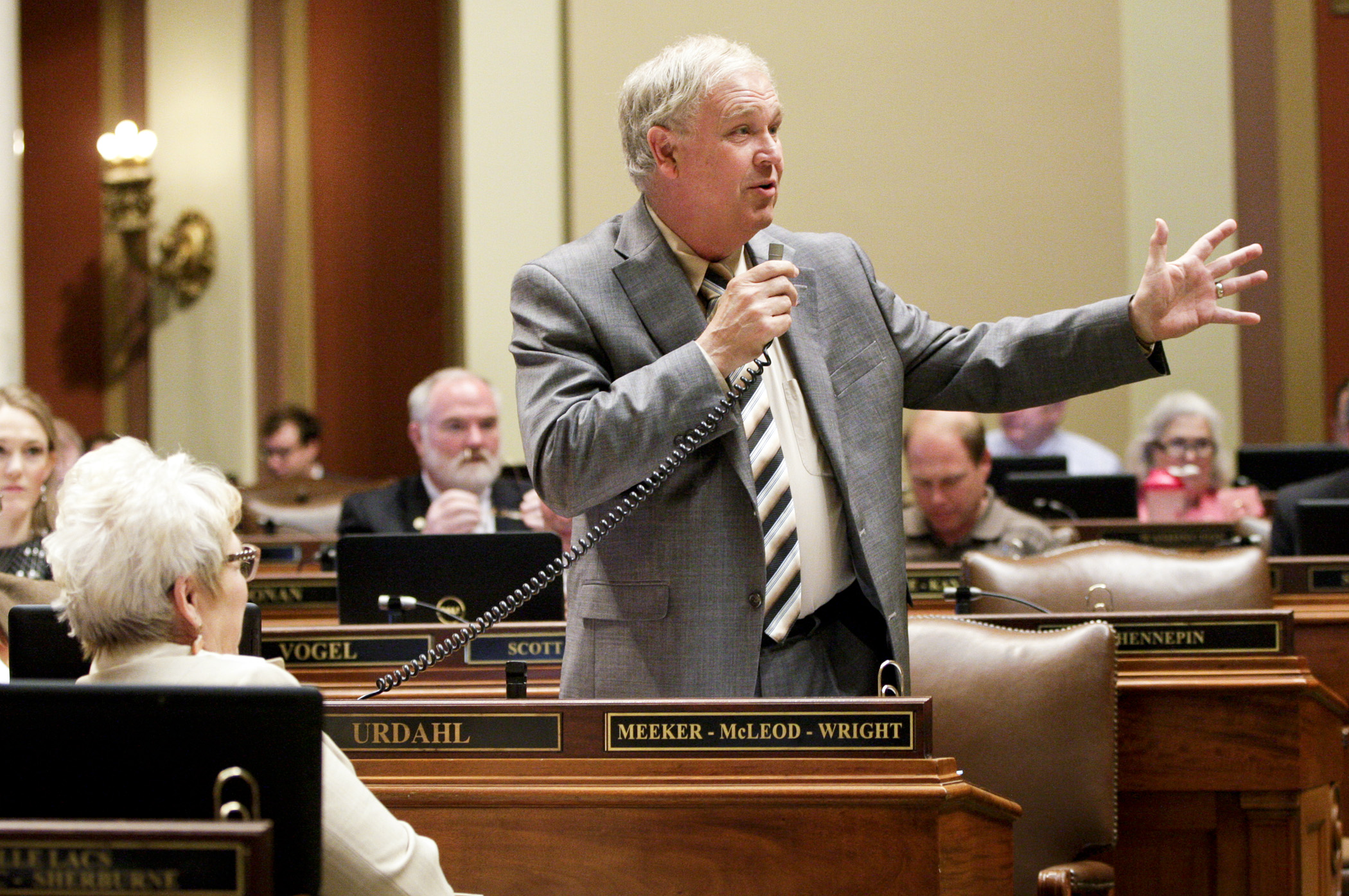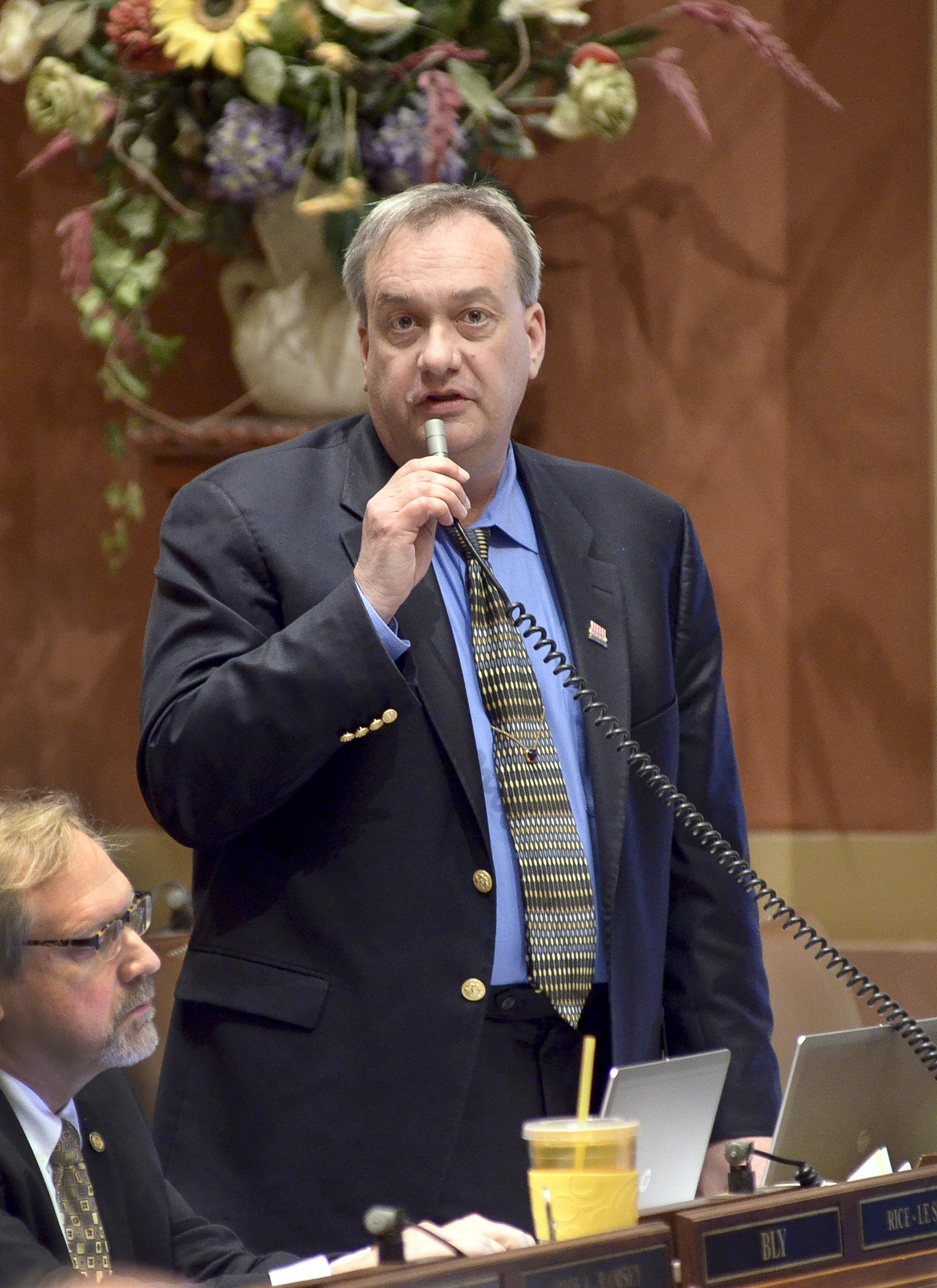House passes legacy bill, appropriating $540 million for upcoming biennium

A flurry of friendly amendments were adopted and, although attempts to change some of the more controversial provisions of HF303 were not, the omnibus legacy bill received strong bipartisan support as the House passed it 97-31 Thursday afternoon.
HF303 would appropriate nearly $540 million from the legacy fund for the environment, arts, parks, trails and other state resources for the biennium in the following manner:
- Clean Water Fund — $226.2 million
- Arts and Cultural Heritage Fund — $124.01 million
- Outdoor Heritage Fund — $99.9 million
- Parks and Trails Fund — $89.4 million
These funds were created by the Clean Water, Land and Legacy Amendment in 2008. It increased the state sales tax by three-eighths of 1 percent until 2034, distributing the revenue raised to each fund based percentages defined in the state constitution. Three of the funds receive biennial appropriations, while the OHF is an annual appropriation.
Rep. Dean Urdahl (R-Grove City), sponsor of HF303 and chair of the House Legacy Funding Finance Committee, said that although the bill still needs work, it is transparent and fair.
“I don’t think the perfect bill has ever been before this body,” Urdahl said.
Earlier this session, Urdahl said feelings of entitlement have been growing among some groups who had received money in the past, and recipients need to understand there is never a reduction in legacy funding because the baseline for each group is zero. He echoed those sentiments Thursday.
Urdahl also said there were $28 million more in funding requests than legacy dollars available and roughly 90 percent of the money will go to Greater Minnesota, which might seem out of line until people realize 90 percent of the projects and habitat take place and are located there.
HF303 now goes to the Senate where Sen. Richard Cohen (DFL-St. Paul) is the sponsor.
Attempted changes
An amendment to the bill, offered by Rep. Rick Hansen (DFL-South St. Paul), that would have deleted a section removing voting authority from two members of the Clean Water Council — a representative from the University of Minnesota and one from the Metropolitan Council — failed on a roll-call vote.
Hansen said HF303 would leave only special interests with a voice on the CWC, which makes funding recommendations to help implement programs and policies working to achieve improved water quality, and that removing the voting privileges from those members would harm the process.
 Rep. Rick Hansen speaks to the omnibus legacy finance bill on the House floor April 30. Photo by Andrew VonBank
Rep. Rick Hansen speaks to the omnibus legacy finance bill on the House floor April 30. Photo by Andrew VonBank“They provide the science that’s needed as we make these tough water quality decisions,” Hansen said.
However, Rep. Paul Torkelson (R-Hanska) defended that provision saying the university and the Met Council have a conflict of interest on the board because each has received direct appropriations from the Clean Water Fund.
Another amendment offered by Hansen would have increased funding to the Minnesota Agricultural Water Quality Certification Program, which encourages farmers to implement conservation practices to protect the state’s water. It also failed on a roll-call vote.
Hansen said the program funds “real projects on the ground for real farmers” and was having a positive impact. He also said by not fully funding the program, the state would lose out on $9 million in federal money that could be brought in to match state dollars.
Torkelson agreed the program had merit, but said he was uncomfortable fully funding it until questions about how the program could feasibly be rolled out statewide were answered.
“I’m not interested in overspending on something that only reaches a portion of our producers,” Torkelson said.
Amendments adopted
Several amendments to the bill were adopted, they include:
- A33 – it requires the Board of Water and Soil Resources to contract with the Conservation Corps of Minnesota for up to $1 million during the upcoming biennium for restoration and maintenance activities;
- A34 – it requires the Greater Minnesota Regional Parks and Trails Commission to submit a ranked list of projects to legislative leaders containing recommendations for funding from the Parks and Trails Fund for Fiscal Year 2017;
- A35 – it requires the Greater Minnesota Regional Parks and Trails Commission to submit a report to legislative leaders with criteria for funding from the Parks and Trails Fund, including criteria used to determine if a park or trail is of regional significance; and
- A36 – it adds language that says, when feasible, recipients of legacy funds are encouraged to use conservation practices that promote butterfly habitat, including planting and maintaining vegetation beneficial to monarchs and minimizing the use of pesticides.
What else would HF303 do?
- prohibit previous legacy fund recipients from receiving future funds if found to have failed to comply with laws, rules or regulations by the legislative auditor;
- mandate a study of alternatives to the current payment-in-lieu of taxes system for reimbursing counties for lost tax revenue when the state purchases land in their jurisdiction. The study must include examination of a trust-fund approach that would create accounts counties could use to pay for the ongoing costs associated with land acquisition;
- direct the Board of Water and Soil Resources to work with local, state and federal agencies, groups and stakeholders to “foster mutual understanding” and provide standardized specifications for water quality, soil conservation protections and improvements;
- fund arts education, mentor programs and community presentations designed to engage Somali youth in communities around the state;
- require the owner of land previously purchased with money from the Outdoor Heritage Fund to submit any profits made if the land is subsequently transferred to the state;
- appropriate $32 million to the Minnesota Historical Society to preserve and enhance access to the state’s history and cultural and historical resources;
- appropriate $20 million for the Board of Water and Soil Resources to acquire restore or preserve permanent conservation on riparian buffers to keep water on the land;
- appropriate $3.2 million for the restoration and preservation of fine art in the State Capitol complex;
- appropriate $2.2 million for the Como Zoo to develop educational programs, enhance habitat and historical garden access and create special exhibits;
- appropriate $2.2 million for the Minnesota Zoo for programs, development of a zoological garden and to provide access and education related to the state’s cultural heritage; and
- appropriate $1.2 million for Science Museum of Minnesota for arts, arts education, arts access and to preserve the state’s heritage.
Read more: What’s in HF303? A list of selected bills that have been incorporated in part or in whole into the omnibus legacy bill:
Related Articles
Search Session Daily
Advanced Search OptionsPriority Dailies
Ways and Means Committee OKs proposed $512 million supplemental budget on party-line vote
By Mike Cook Meeting more needs or fiscal irresponsibility is one way to sum up the differences among the two parties on a supplemental spending package a year after a $72 billion state budg...
Meeting more needs or fiscal irresponsibility is one way to sum up the differences among the two parties on a supplemental spending package a year after a $72 billion state budg...
Minnesota’s projected budget surplus balloons to $3.7 billion, but fiscal pressure still looms
By Rob Hubbard Just as Minnesota has experienced a warmer winter than usual, so has the state’s budget outlook warmed over the past few months.
On Thursday, Minnesota Management and Budget...
Just as Minnesota has experienced a warmer winter than usual, so has the state’s budget outlook warmed over the past few months.
On Thursday, Minnesota Management and Budget...